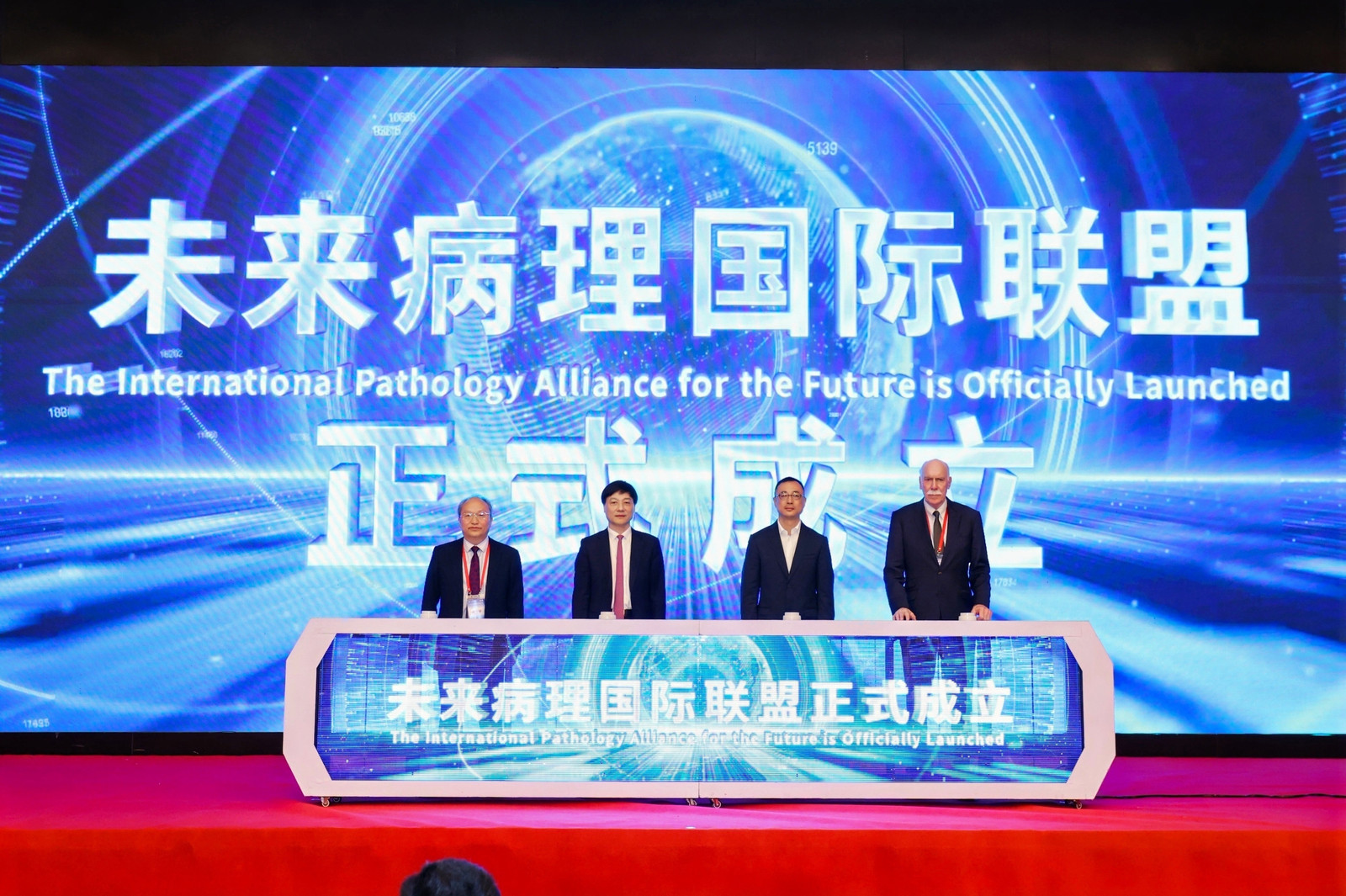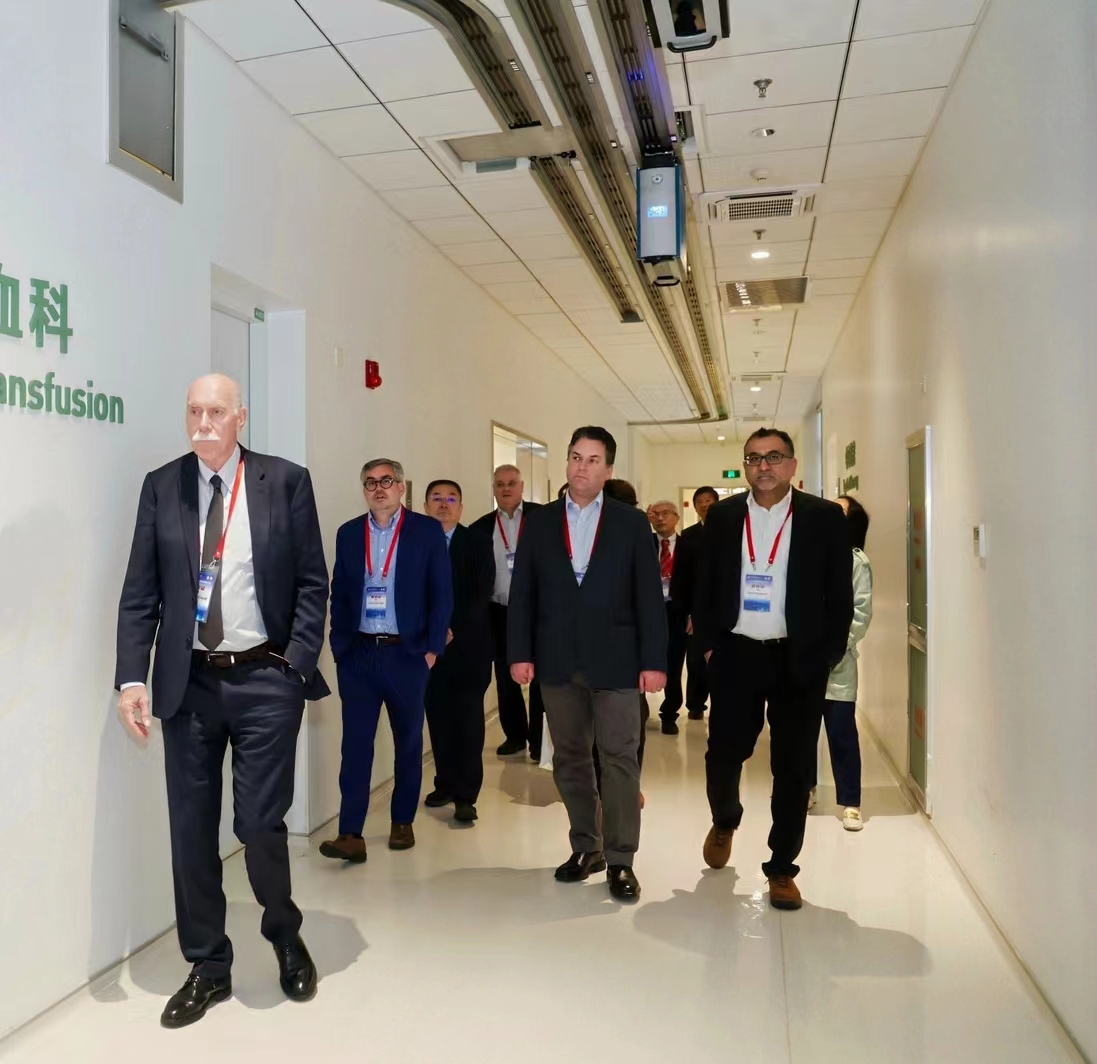The International Symposium on the Future Pathology commenced on April 12, 2015 in Hangzhou, bringing together global experts in artificial intelligence (AI), multi-modal imaging, and spatial genomics to foster international collaboration and accelerate the translation of cutting-edge technologies into clinical practice. The symposium attracted leading scholars and experts from globally renowned institutions, including Mayo Clinic, Charité University Hospital, Singapore General Hospital, Imperial College London, Brown University, etc., and other pioneering organizations across the US, the UK, France, Germany, Switzerland, Singapore, etc.
Pathology, hailed as the "cornerstone of modern medicine," bridges basic research and clinical practices. At the opening ceremony, Professor CHEN Chun, the Academician of the Chinese Academy of Engineering and a leading scholar at Zhejiang University, emphasized the transformative role of AI: "The emergence of large-scale models like ChatGPT and Deepseek has unlocked unprecedented opportunities for intelligent pathology. These technologies redefine disease diagnosis, treatment strategies, and personalized medicine".

" The International Pathology Alliance for the Future" launched during the symposium
The First Affiliated Hospital, Zhejiang University School of Medicine (FAHZU), a top-tier hospital in China renowned for its research and innovation, showcased its leadership in AI-integrated pathology. Professor LIANG Tingbo, President of FAHZU, highlighted the hospital’s commitment to digital transformation. In July 2024, FAHZU established China’s largest digital pathology center, equipped with 40 high-throughput scanners, which has completed the scanning of nearly 6 million digital slides, and all daily pathological slides have been fully digitized.
A standout innovation is OmniPT, an AI-powered pathology assistant co-developed by the Pathology Department at FAHZU and the School of Computer Science at Zhejiang University. Traditional pathology reviews by seasoned experts often take 15 minutes per case, but OmniPT slashes this to under one minute. "It acts like a detective lens, pinpointing microscopic lesions within 1–3 seconds with over 95% accuracy," explained Professor ZHANG Jing, Chair of the Pathology Department at FAHZU. The system leverages cross-layer feature localization and semantic-visual alignment to enable rapid, precise analysis of ultra-large pathological images, even automating report generation.
The symposium also highlighted FAHZU’s efforts to align its pathology discipline with global standards through comprehensive partnerships with world-renowned institutions. Professor Manfred Dietel, a German National Academy of Sciences member and senior professor at Berlin’s Charité University Hospital, is one of the initiators of "The International Pathology Alliance for the Future", launched during the event. This initiative aims to advance collaborative standard-setting, talent exchanges, joint research, and resource sharing, while building a globally influential cooperative network in pivotal technological domains such as digital-intelligent pathology and spatial omics.


International Experts visit FAHZU
Professor CHEN Gang, Vice President of Zhejiang University, underscored the dual-edged nature of AI: "AI is not just a tool but a strategic pivot redefining pathology’s boundaries. However, ethical dilemmas, technical barriers, and the need for interdisciplinary collaboration demand global cooperation."
The symposium underscores a pivotal shift: AI is no longer an auxiliary tool but a cornerstone of next-generation pathology. With pioneers like FAHZU driving this transformation, the fusion of technology and medicine promises to redefine patient care worldwide.


